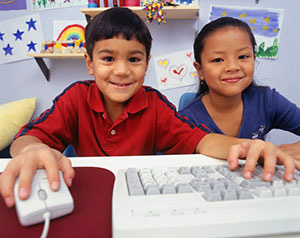 Recently, a computer engineer working for a local technology company contacted me. He told me his freshman son was interested in starting a coding club at his high school. He remembered coming to one of my after-school club meetings to speak to my students about his choice of career as a computer engineer. He asked what my strategy was to have a club that had nearly 30–40 members, some of whom won the Congressional App Challenge, representing the 23rd California Congressional District. Because I consider coding as one of the major components of digital literacy skills, I’d like to share the answer I gave my friend.
Recently, a computer engineer working for a local technology company contacted me. He told me his freshman son was interested in starting a coding club at his high school. He remembered coming to one of my after-school club meetings to speak to my students about his choice of career as a computer engineer. He asked what my strategy was to have a club that had nearly 30–40 members, some of whom won the Congressional App Challenge, representing the 23rd California Congressional District. Because I consider coding as one of the major components of digital literacy skills, I’d like to share the answer I gave my friend.
Access matters
I began teaching computer coding by accident. I had to learn to code to pass a doctoral course that required me to create an item using an Arduino board. I quickly realized my limitations and hired a former student as a tutor. While I was struggling to learn to program and create a project to pass my course, I realized how much better my classmates were doing because they had some prior experience with coding.
Focus on exposure
I decided to start a coding club at my school. Clearly, I was in no position to be an expert coder in the room, so I asked for help. In addition to asking my tutor for help, I asked my classmates. That’s when I found out how many free resources are available. Although there are many outstanding resources now, I used CodeHS and Codecademy. I also wrote a grant to purchase more Arduino boards and e-textile materials. Finally, I asked my own students who have done coding to help. We began meeting twice a week, once during the week and on Saturdays.
I thought of my coding club like the thousands of little league baseball teams or youth soccer leagues. Not everyone who plays baseball as a little kid will become a professional, but having some experience will help one to appreciate the sport. Not having the opportunity to play certainly hurts the chances of having quality players in the future. Likewise, we need thousands of coding clubs to create future computer coders and engineers.
Interest over skills development
In addition to introducing free tools to my students to learn to program, I encouraged my students to chase their own interests. Not surprisingly, many of my computer coding club members were also avid video gamers. They were interested in learning about game development. So when they chose to create games using different tools, I encouraged them to do so while looking at the codes behind the tools. Other students wanted to learn HTML to create a simple website or learn to use Photoshop.
All hands on deck approach to developing digital literacy
In a recent Quartz article, Idit Harel, CEO of Globaloria, criticized the way U.S. schools are treating coding. She called this new wave of desire to teach coding by using free online applications “pop computing.” She argued that just as a person playing Guitar Hero shouldn’t be considered a musician, someone playing with coding applications or programs shouldn’t be considered a coder. I agree that we shouldn’t have unrealistic expectations. I do not expect that my students who came to a few club meetings will all become expert computer programmers.
However, as a former English teacher, I must say that I would rather my students read popular books like the Twilight or Harry Potter series than no books at all. I spent over a decade working hard to encourage my students to read more books, even writing a dissertation on a new pedagogy to help my students to read more classics such as Beowulf, Fahrenheit 451, and The Importance of Being Earnest. But when my students asked to read a biography of a baseball player or a book on how to assemble a race bike as their choice of independent reading materials, I always said yes because reading something was better than reading nothing. I believe that providing access to resources, creating structures to provide exposure, and supplying encouragement for interest-driven learning are ways to developing digital literacy for all our students.
Kip Glazer is a native of Seoul, South Korea, and immigrated to the United States in 1993 as a college student. She holds California Single Subject Teaching Credentials in Social Studies, English, Health, Foundational Mathematics, and School Administration. In 2014, she was named the Kern County Teacher of the Year. She earned her doctorate of education in learning technologies at Pepperdine University in October 2015. She has presented and keynoted at many state and national conferences on game-based learning and educational technologies. She has also consulted for Center for Innovative Research in Cyberlearning and the Kennedy Center ArtsEdge Program.